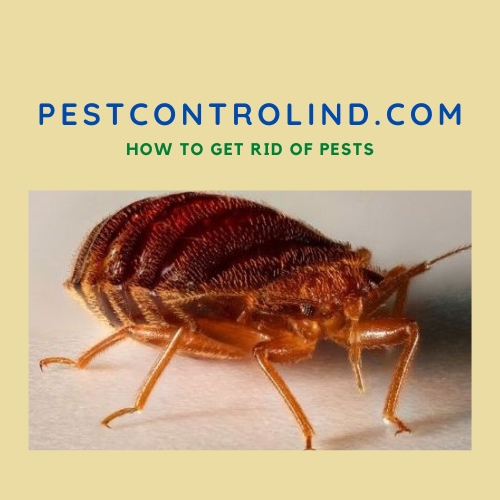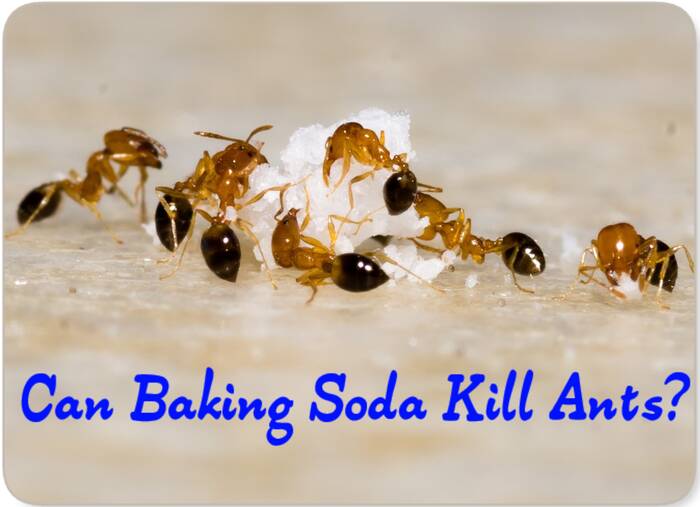Can baking soda kill ants is a relatively easy question to answer in this short but condensed article.
We will quickly go over the different methods that exist with this magical ingredient to fight ants.
First of all, we will give a small overview of ants and baking soda, then the methods that are very simple to apply, and at the end, we will embellish the whole with some practical advice to avoid and prevent ant infestations.
But before starting we want to specify that ants are very useful insects for biodiversity and have a very big role to play in the cleaning of the environment and many other things that we do not even know!
And that’s why we must do everything to avoid killing them. And know that sometimes a simple cleaning of our home is more than enough to make them go away!
Indeed killing them should be the last option after doing everything possible to get them out of our homes!
I. A little word about ants
Ants are very useful insects in nature, because of the enormous task they do in cleaning the environment of all the animal carcasses and other insects and detritus.
They even contribute, together with bees, to the polonization of many plants.
In a garden, they are very effective predators of many insects that are harmful to crops, even if sometimes they are the ones that become very harmful to the plants in the garden.
Ants take care of aphids, which are real destroyers of everything that carries sap, sucking their energy until death follows.
The ants strangely take care of these aphids like their babies, moving them from one plant to another and protecting them from other predators in exchange for the molasses they secrete.
II. What is baking soda?
Baking soda, also called sodium hydrogen carbonate, is a salt composed of sodium ions and bicarbonate ions.
These are usually small crystals in powder form. The powder is usually a fine white powder like table salt and has a salty taste. This powder dissolves easily in water.
III. Can baking soda kill ants
It is not surprising for anyone, I think, to hear that even in the fight against ants, baking soda, in addition to the dozens of benefits it has, is also effective in this area.
Here are three very simple methods of getting rid of ants with baking soda.
1. Baking soda and dishwashing liquid
This method is generally applied when we have already located the ant farm, the colony of ants from which the one infesting our house comes. It is radical in its effects.
It is a clever mix between baking soda and the dishwashing liquid that we usually use in the kitchen.
We mix the two ingredients to have small compact pellets, which we will scatter around the ant farm, as well as at the bottom of the hole that serves as their entrance.
By repeating this operation several times, likely, you will not see these ants roaming inside your house anymore.
2. Baking soda and powdered sugar
This time, the mixture must be liquid. We take 10 tablespoons of baking soda and 10 tablespoons of sugar that we will mix with 5 tablespoons of water.
The solution obtained is then put in small flat containers that will be placed within the reach of ants by placing them exactly in the places of their passages.
They will be attracted by the smell and taste of powdered sugar, but will not suspect in any way that they ingest with it, the poison that is baking soda.
This method will allow, if repeated enough, to eliminate sometimes a whole colony of ants because of their abnegation to the social group to which they belong. Indeed, it is the workers who bring the poison to their fellow workers so that they eat it.
It will not be surprising to see after the implementation of this method to find carcasses of ants everywhere.
3. Sprinkle baking soda
This is still the easiest way to get rid of ants with baking soda. Because we just need to sprinkle with baking soda all the passages that we suspect the ants are using to make them flee permanently from our home.
Don’t forget to put in all the hidden corners of the house, especially behind the fridge and the stove.
IV. Why is baking soda a good choice to get rid of ants?
Baking soda is preferred primarily as a natural solution that can be easily and safely spread in and around our home to kill ants.
Most people may already have some in their homes. Baking soda is commonly used as an odor absorber and placed under sinks or in a refrigerator or freezer.
It is also beneficial to humans and is consumed as an ingredient in some baked goods. It is also found in some toothpaste recipes.
V. Preventing an ant infestation
It is good to get rid of ants with baking soda but it is better to never use it at all. We will give you some practical advice, which, if you apply them, you will have less chance of seeing these little insects that are ants wandering all over your house.
- Vacuum regularly: Keeping your floor clean can make a big difference in getting rid of food crumbs that might otherwise go unnoticed. Keep your floors clean in kitchens and dining rooms so that you don’t leave any food sources, which is the main reason ants come into your home.
- Clean the dishes: it is understandable for everyone that it is normal to be lazy to do the dishes right after having a good delicious meal. It’s not easy to get up and clean all the dirty pots and cups. But that’s exactly what needs to be done. Food scraps and dirty dishes left in the lever full of water instantly attract ants.
- Wipe the floors of the house as often as possible with flavored floor fluids to erase any pheromones that may have been left behind by an ant sent out to scout. Also wipe down closets, drawer bottoms, stoves, and other furniture.
Hopefully, we’ve answered the question of how to get rid of ants with baking soda. And if you are interested in other natural methods, you can check out our article: how to get rid of ants in the house.
Useful Links:
There are over 8,800 species of ants in the family Formicidae.

